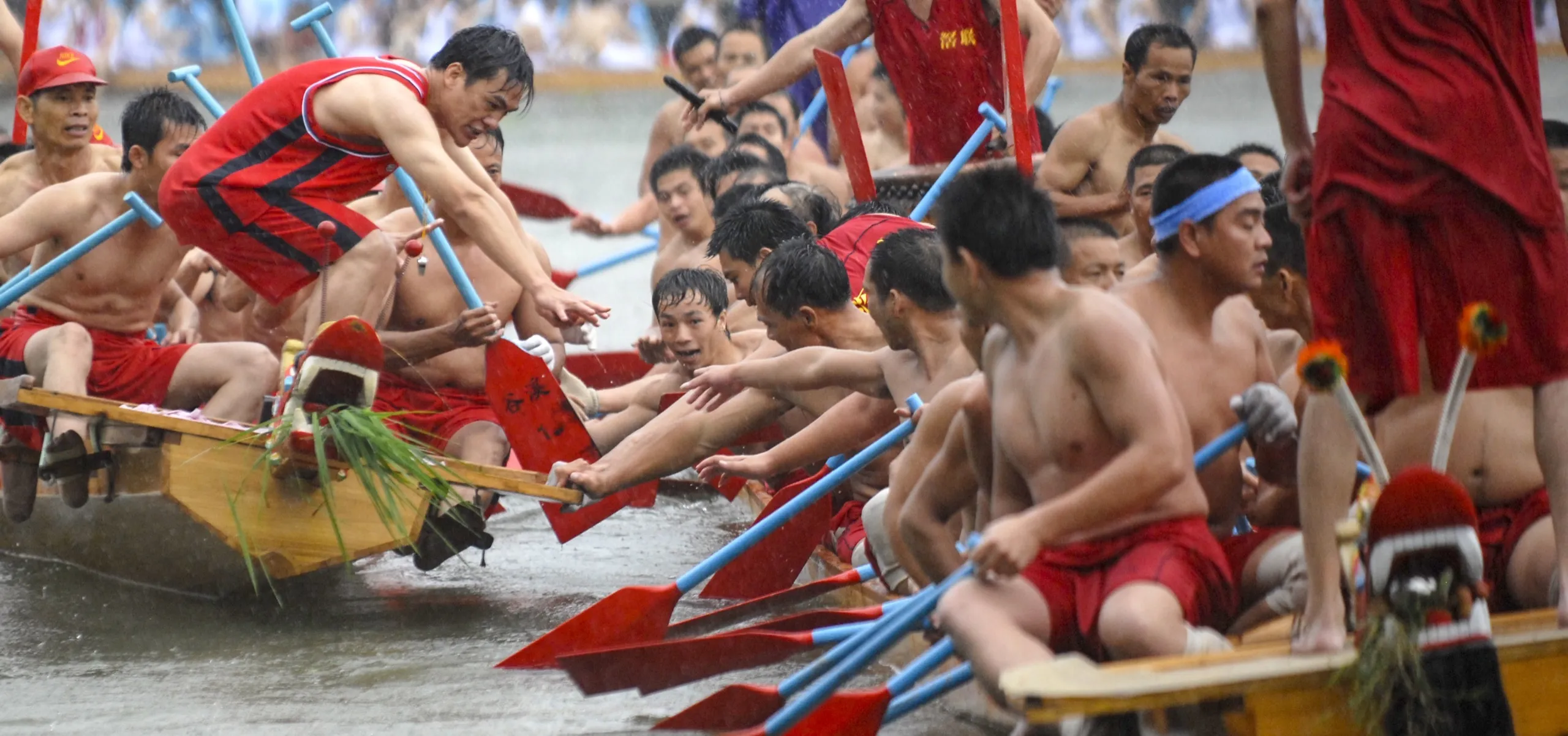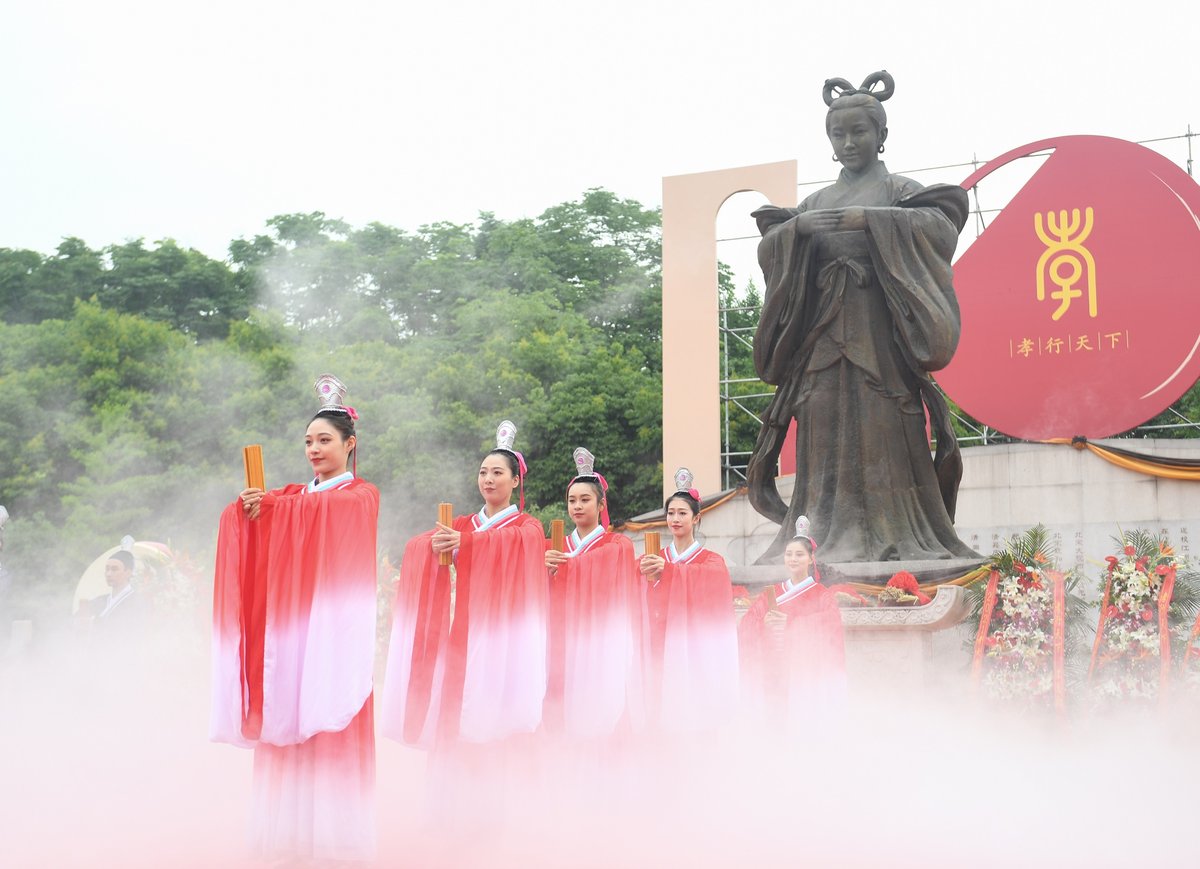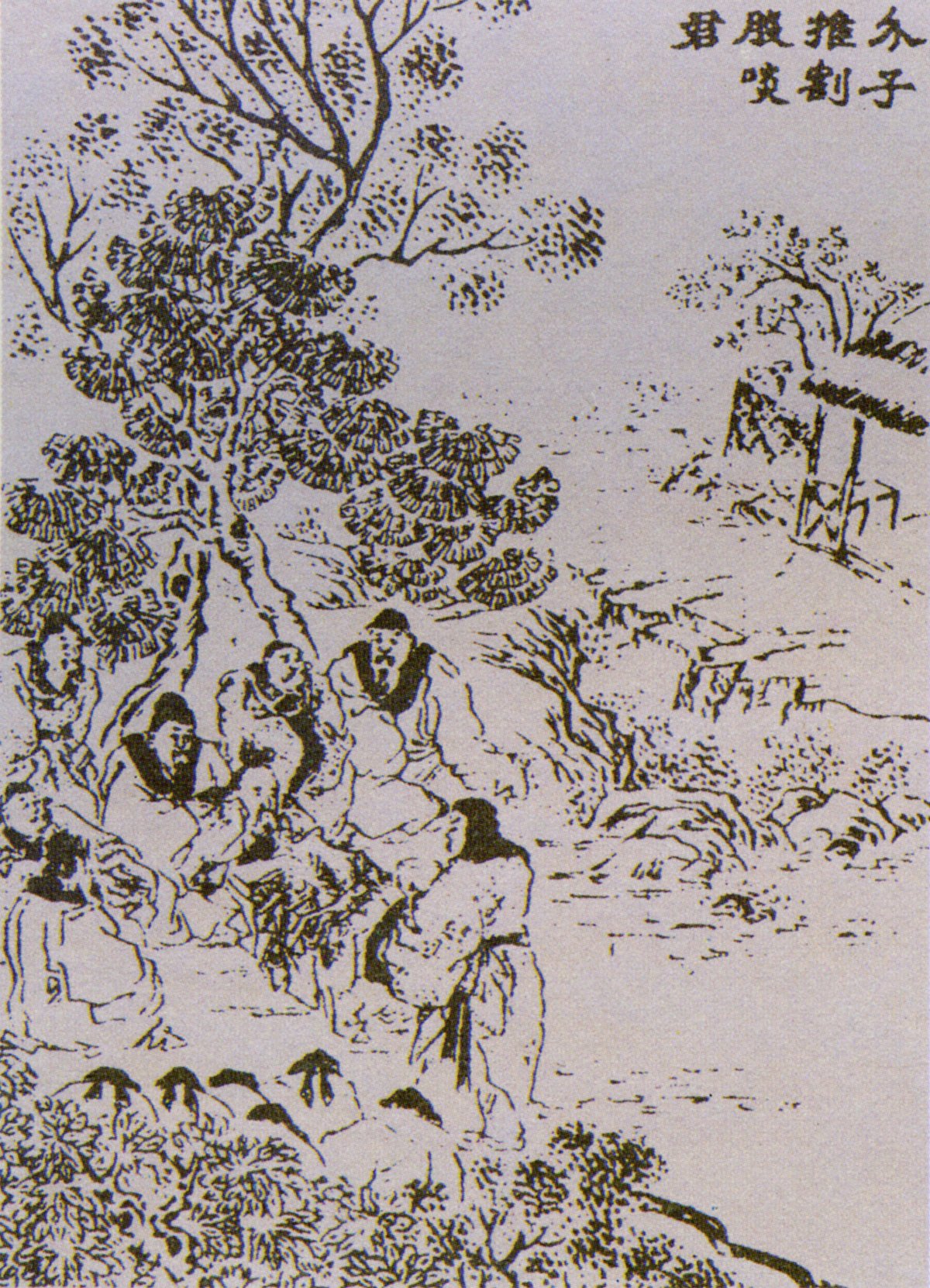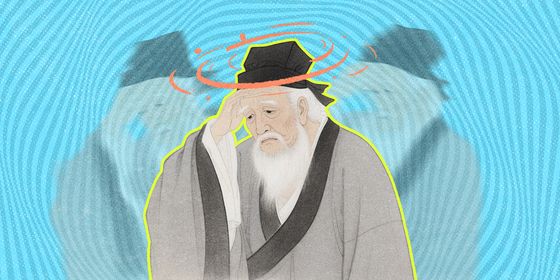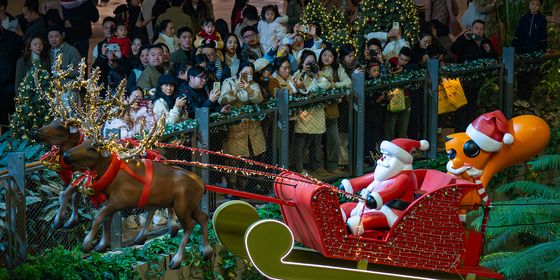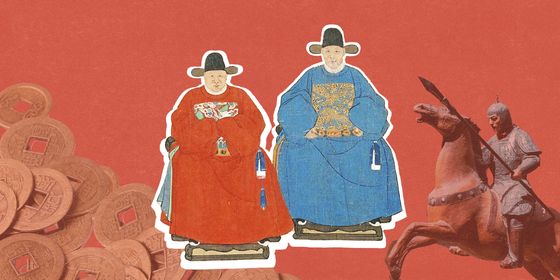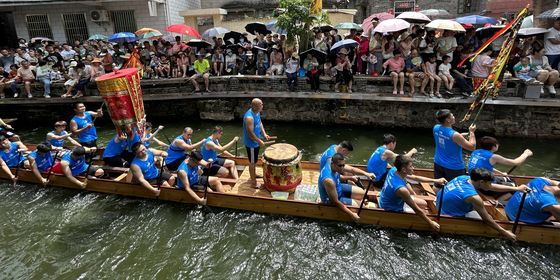Dozens of historical figures are commemorated on Duanwu Festival, so how exactly did the festival begin?
Today, China celebrates Dragon Boat Festival, or Duanwu Festival (端午节), with a public holiday, boat races, and mountains of zongzi, a gelatinous rice pyramid. Considered one of China’s “Four Traditional Festivals,” along with the Lunar New Year, Qingming Festival, and Mid-Autumn Festival, Duanwu Festival is one of the oldest celebrations on the Chinese calendar. But while the holiday is now about water sports and eating, historically it was an occasion for sacrifice rituals, and a time for solemn remembrance rather than play.
The most widely known origin story of the festival is that it commemorates the death of Qu Yuan (屈原) in the Spring and Autumn period (770 – 476 BCE), who drowned himself in the Miluo River after he was exiled and his home state Chu was captured by the State of Qin. Local people apparently threw sticky rice into the river hoping that the fish would eat the grain instead of Qu Yuan’s body, leading to the invention of zongzi.
But this story is disputed, and many other tales, regions, and people claim to represent the heart of this day of commemoration. Wen Yiduo (闻一多), a scholar and poet in the early 20th century, pointed out in his essay “An Exploration into Duan Wu” that the festival most likely predates Qu Yuan’s demise by centuries, and probably emerged much earlier as a festival to worship dragons, still a traditional symbol of power and wisdom in China today.
Nevertheless, a number of historical figures and incidents have become associated with the festival since, and are still part of celebrations today. During the Spring and Autumn period, those in the State of Wu, situated around present-day Suzhou, commemorated the death of their loyal official Wu Zixu (伍子胥) on the fifth day of the fifth lunar month. According to the Spring and Autumn Annals of Wu and Yue (《吴越春秋》), a historical record from the Eastern Han dynasty (25 – 220), Wu committed suicide after falling out with the king, who had the official’s corpse thrown in the river. But Wu’s body didn’t sink, and the legend spread that Wu had become immortal, with locals dubbing him the “god of waves (涛神).” Every year hence, people would row boats upstream to greet their god of the waves, which supposedly led to the tradition of dragon boat racing.
But another story related to the dragon boat celebrations has since surpassed the legend of Wu Zixu. Hundreds of years later, the tale of Cao E (曹娥), a young girl from Kuaiji (today’s Shaoxing) during the Han dynasty (206 BCE – 220 CE), became intertwined with the festival. According to the Book of Later Han (《后汉书》), a historical text recording the history of the Eastern Han dynasty, Cao’s father was a wizard who took part in the Duanwujie celebrations each year. One year, when he was on the water greeting the god of waves, he fell into the river and drowned. His body was lost. Cao was so heartbroken that she cried for seven days while wandering along the river looking for her father’s body. When she couldn’t find it, she jumped into the river and died. Moved by her filial piety, local people erected a monument for her, on which her story was carved, and even renamed the river the “Cao E River.” Since then, Dragon Boat Festival has also commemorated Cao’s sacrifice.
Meanwhile, in Guangxi, it is widely believed that the festival was created to commemorate a Han dynasty official named Chen Lin (陈林). According to another text known as the Book of Later Han, this one written by Xie Cheng (谢承) of the Three Kingdoms era (220 – 280), Chen was the prefectural chief of Cangwu, roughly in today’s Wuzhou, and was renowned as a just and compassionate ruler. One legend lauded his merciful tendencies (though cruel by today’s standards). Chen arrested a young man for murder, and sentenced him to death. But Chen then learned that the victim had killed the culprit’s father, and the young man had no descendants. Society in Chen’s time placed huge importance on the need for the family line to continue through the birth of a son, so Chen postponed the man’s execution. Instead, he allowed the man’s wife to live with him in prison and didn’t execute him until his wife gave birth to a baby boy.
At the time, Chen’s decision was viewed as compassionate and merciful, and he became a well-loved figure in Cangwu. When he died years later, people began to commemorate his passing on the fifth day of the fifth lunar month each year, often dressing their children in clean clothes and going to dance at the city gates. The modern holiday is still associated with the benevolent official.
Even Jie Zitui (介子推), an official in the Spring and Autumn period whose death led to the creation of the Cold Food Festival, had been associated with Duanwujie. Jie’s story ended with him being burnt alive in the mountains, and his death commemorated by a ban on lighting fires and a day of eating cold food only. But although the Cold Food Festival originally appeared to be held in the middle of winter, some historical records link it to the date of Duanwu Festival. The Qin Cao (《琴操》), one of the oldest surviving books on music written by Han dynasty scholar Cai Yong (蔡邕), records that because Jie was burnt to death the duke of Jin forbid people from lighting fires on the fifth day of the fifth month. Similar records also appear in Records of Ye (《邺中记》), a historical text written by Jin dynasty (265 – 420) scholar Lu Hui (陆翙), which states that in Bingzhou, an area stretching roughly across today’s Hetao of Inner Mongolia, Taiyuan and Datong of Shanxi province, and Baoding of Hebei province, “people worshiped Jie Zitui on the fifth day of the fifth lunar month by not cooking with fire, because he was burnt to death that day.” Today, many people take this as a core part of Duanwu Festival, and eat zongzi as a kind of cold food.
It’s debateable how many of these legends are accurate, and even more difficult to ascertain how exactly they relate to the ancient origins of Duanwu. But these figures are remembered nonetheless—most people don’t need much of an excuse to eat a few zongzi in commemoration.





